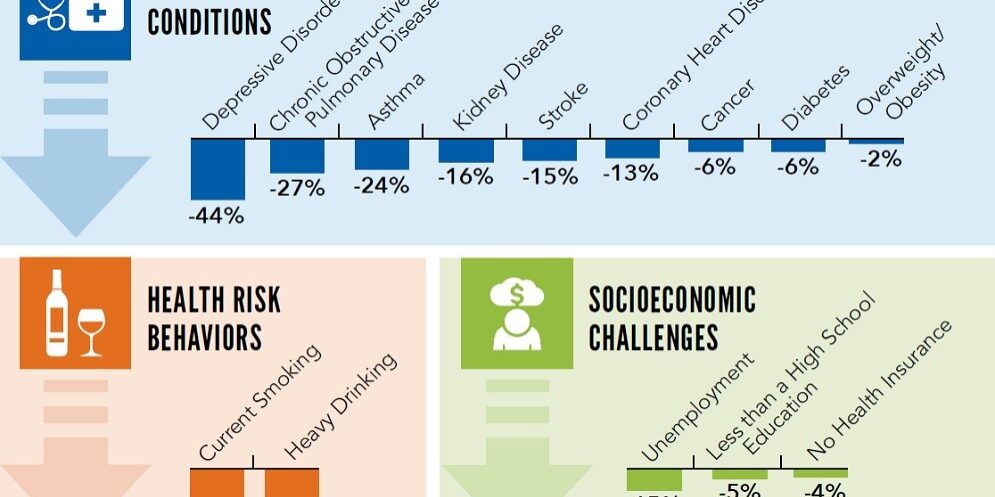

By Emily Hooks
Last week, the Centers for Disease Control and Prevention (CDC) released the Adverse Childhood Experiences (ACEs) Vital Signs report. This comprehensive report details the impact of adverse childhood experiences on long-term health and provides recommendations for preventing them.
ACEs are defined as “potentially traumatic events that occur in childhood (0-17 years).” ACEs can include witnessing or experiencing violence, being neglected or abused, growing up in a family with substance use disorders, or having a parent who is incarcerated. The authors of the Vital Signs report analyzed data from more than 144,000 adults from the 2015-2017 Behavioral Risk Factor Surveillance System (BRFSS). Nearly 61% of respondents reported they had experienced at least one ACE, and 1 in 6 respondents reported experiencing 4 or more ACEs. Women and American Indian/Alaskan Native Non-Hispanic and Black Non-Hispanic respondents were more likely to experience 4 or more ACEs.
ACEs contribute to toxic stress that can change brain development and the body’s response to stress. ACEs impact long-term health and increase risk for some of the leading causes of death including cancer, diabetes, heart disease, suicide, and drug overdose. Those who experience ACEs are also more likely engage in health risk behaviors, have depression, experience unemployment, and obtain less than a high school diploma. Though the impact of ACEs can be long-term and pervasive, ACEs are preventable.
Preventing ACEs may result in fewer health risk behaviors, health conditions, and socioeconomic challenges. The data show that preventing ACEs has the potential to reduce depression by 44% and prevent up to 1.9 million cases of heart disease, the leading cause of death in the US. The CDC calls for communities to work collaboratively and develop strategies that reduce ACEs and increase the mental, social, physical, and economic well-being of children and families.

Since 2014, with funding from the CDC, North Carolina Essentials for Childhood partners have focused on CDC-recommended strategies for preventing ACEs in North Carolina’s children. Starting in fall 2019, under the guidance of state child health and well-being experts, the North Carolina Essentials for Childhood initiative will narrow its strategic focus to meet 2 aims outlined by the Centers for Disease Control and Prevention: changing social norms to prevent child maltreatment and strengthening economic supports for families. An upcoming information session on the current state landscape of family friendly work policies will take place on December 2 at the North Carolina Institute of Medicine.
The Vital Signs report recommends community solutions that promote safe and nurturing environments and help youth learn social-emotional skills. In September 2019, NCIOM released the Supporting the Mental Health and Emotional Well-Being of Students in North Carolina Schools issue brief that details approaches used in North Carolina schools to address the mental health of students, including trauma-informed practices.
More information on the impacts of ACEs in North Carolina and efforts across the state to prevent and help children cope with ACEs can be found in the 2018 March/April issue of the North Carolina Medical Journal.